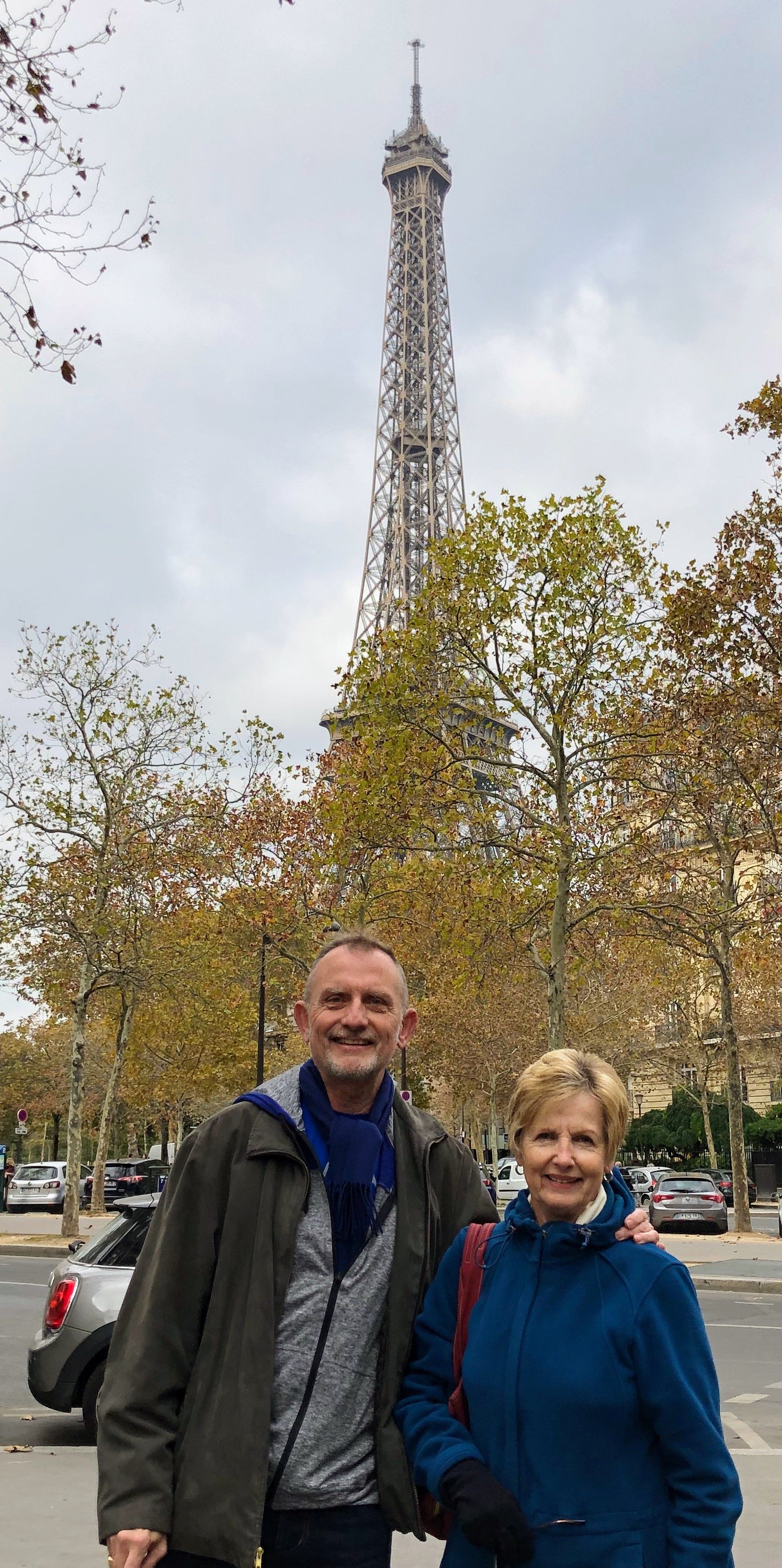Facing myself and our life. Am I in denial about being in denial?
The “about us” page for this blog says we received Evelyn’s Alzheimer’s diagnosis in December 2019. But actually, a neurologist first used the word Alzheimer’s with us a year before that.
It was after the second or third round of cognitive tests Evelyn had undergone, and the doctor spoke of Alzheimer’s with sentences like, “Alzheimer’s patients often experience so-and-so.” Or “There are many resources for families living with Alzheimer’s.” She never sat in front of us, looked us directly in the eye, and said, “Evelyn, you have Alzheimer’s disease.”
October 2018: The doctor was using the word Alzheimer’s, but I wasn’t hearing it.
At least, I don’t think she did. I don’t remember that she did. With the finding of mild cognitive disorder sometime before that, the doctor had already prescribed donepezil, the standard first treatment to slow the progression of Alzheimer’s, even though they hadn’t yet called her symptoms Alzheimer’s. That’s where we were, it seemed to me. Nothing needed to change.
New territory
But we had crossed the line into new territory, even though I wasn’t willing to go there. The doctor signed me up to get information from the local Alzheimer’s Association. When the thick manila envelope came in the mail, I stuffed it in the bottom of a drawer and didn’t even open it until at least a year later.
I was in full-blown denial. Not until we met a new neurologist (a gift from God, assigned to us after the previous doctor left the practice) and he strongly encouraged a spinal tap analysis, did we confront the reality.
December 2019: About a week before we received the conclusive test results
“It’s easy to stay in denial,” I admitted to him with quivering voice when he gave us the test results that day.
And it’s still easy. Even easier, I’m deciding, to be in denial about being in denial.
Not my problem
I don’t want to admit that denial’s my problem. After all, we’ve gone public with the news, haven’t we? I’m blogging about it every week! There’s no pretense here, right?
Maybe not. But it’s still very difficult for me to acknowledge and accept, let alone anticipate, each new development in our slippery, slow slide into ever-changing realities.
It’s good, I suppose, to keep propping up the accompaniments to “normal” in our lives. We invite friends for dinner and accept invitations from them. We go out for supper or an “ice cream date” on Friday nights. We go to church most weeks, and Evelyn always looks nice in an outfit she’s let me help her choose.
But on the way there last Sunday she noticed orange juice spilled all over her white jeans. They were clean when I pulled them out of the closet. Sometime between Saturday night and Sunday morning at 8:30, the accident had happened. She didn’t know it, and in the rush to get out the door I hadn’t seen it, either. Parkinson’s caused the tremor. Alzheimer’s kept her unaware. We came home, hastily chose another pair of slacks, and missed most of the music at the beginning of the service.
This will happen again. It’s a new reality. I’ve washed those jeans, and the stain is gone. But the diseases will continue to erode our normal.
Unwelcome assessment
We saw the doctor last week for a checkup, which usually involves a round of cognitive testing with Evelyn while a social worker interviews me. Last week, this competent, kind professional pronounced assessments that I didn’t want to hear.
I related a conversation that Evelyn and I have had two or three times since the last appointment. On the way home from dinner with friends, a couple of times she has asked, “Will you be staying with me tonight?”
The social worker said this was an indication that in at least those brief moments, Evelyn hadn’t recognized that I was her husband.
I also told how once or twice Evelyn had asked me if we were going to leave those people downstairs after we came up from watching television in our family room. The social worker said this could be a precursor to more serious hallucinations.
But I feel certain none of that is true. Just because this social worker has worked with dozens of patients doesn’t mean she knows better than I what’s going on with my wife. Does it?
I’m wandering in and out of denial. Posting this here is my way of committing myself to the truth that our life has changed, it will continue to change, and I need to be ready.
But of course, I am ready. Really, I am. It will be OK. I’ll be OK, even if Evelyn is not OK. You believe me, right?


